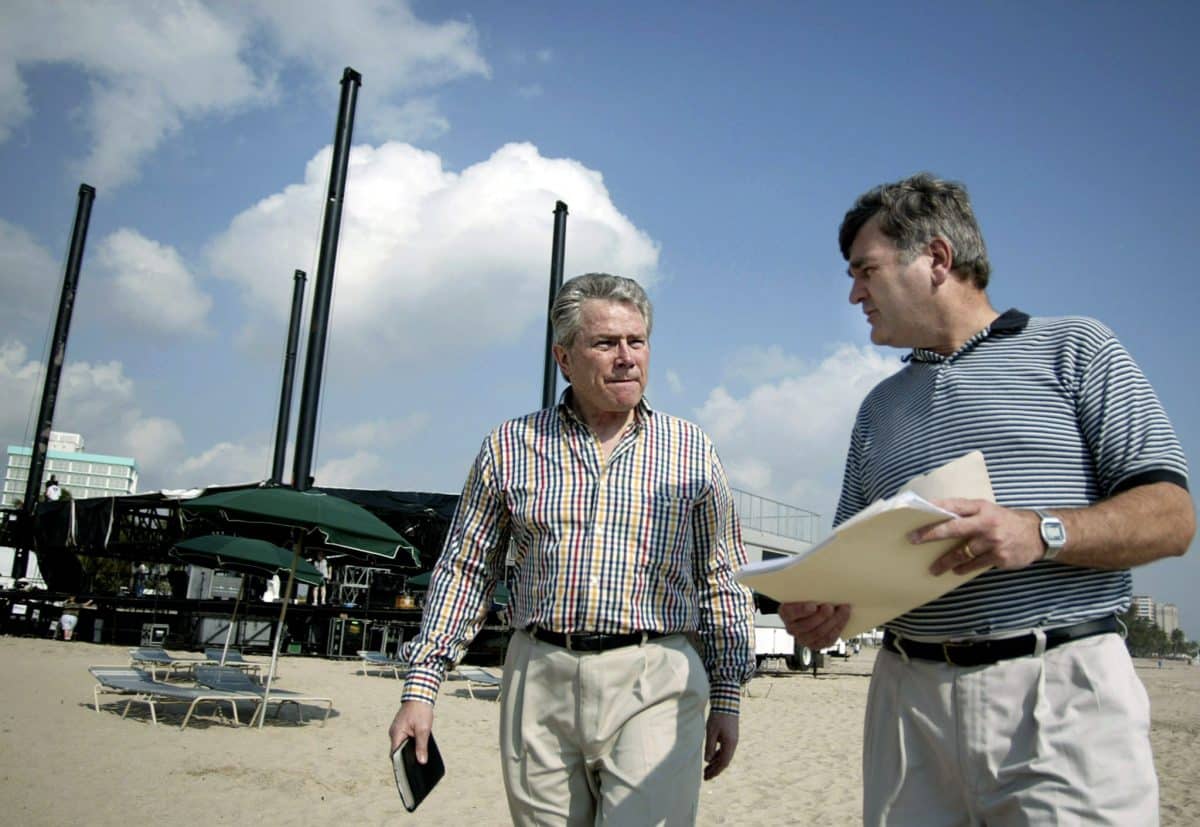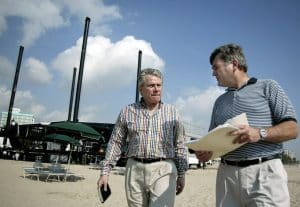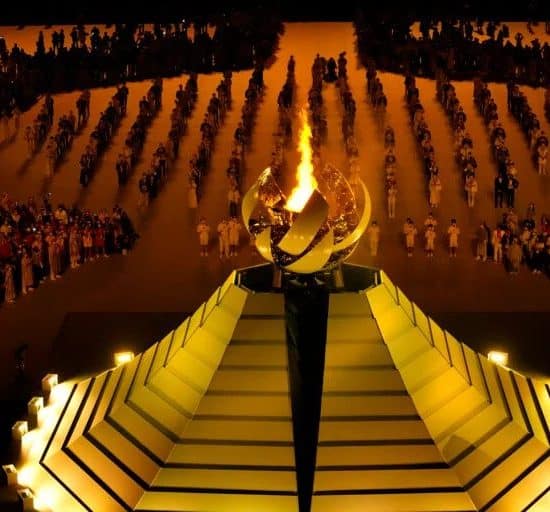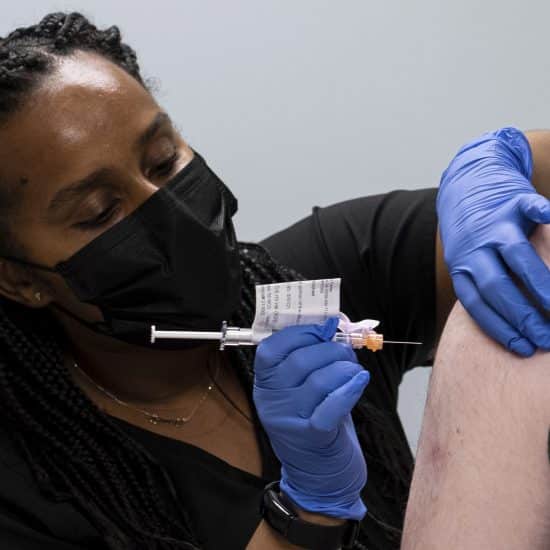
PORTLAND, Ore. (AP) — Luis Palau, an evangelical pastor who was born in Argentina and went on to work with Billy Graham before establishing his own powerhouse international ministry, died Thursday (March 11). He was 86.
The Luis Palau Association said he died at his home in Portland, Oregon. He had announced in January 2018 that he had been diagnosed with terminal lung cancer.
“It is with a mixture of sadness and joy that we share with you that Dad passed away early this morning. He died suddenly and very peacefully, just as he had hoped,” his family said in a statement. “This is hard news, but Luis is experiencing the beauty of the Lord face to face.”

In this March 20, 2003 photo Argentinian evangelist Luis Palau (left) discusses preparation’s for BeachFest, his multi-media Christian revival, with assistant Fred Conklin as they stroll Fort Lauderdale Beach, in Fort Lauderdale, Florida. (Marianne Armshaw/Associated Press)
Born to an affluent family in Buenos Aires, Palau rose from obscurity to become one of the most well-known international Christian evangelists. Over a career that spanned more than half a century, he authored 50 books and addressed 30 million people in 75 countries at evangelical “festivals” that were his modern-day take on the more traditional crusades that boosted his mentor and idol, Graham, to fame.
“In many ways, I feel the Lord has much more in store for me. Yet whatever tomorrow holds — I’m completely at peace. Both Patricia and I are,” he wrote to his followers after the diagnosis. “As we look back, we praise the Lord. Fifty-seven years of marriage. How many places we’ve been. How many people we’ve reached with the Gospel.”
His radio programs, including the international Spanish-language “Luis Palau Responde,” are broadcast on 3,500 stations in 48 countries, and his Portland-based Luis Palau Association organizes dozens of events each year on five continents.
The vastness of his evangelical empire, especially among Spanish-speaking faithful, long ago earned him the nickname the “Billy Graham of Latin America.” A decade ago, Palau began transferring day-to-day operations of that empire to three of his four sons, including one who is now an international evangelist in his own right.
“Everything is ready, so if the Lord wants to take me home … I’m ready,” he said in a January 2018 video to his followers. “I’ve preached about heaven … and I’ve often preached about the second coming and the resurrection, and now, it’s reality for me.”
Palau was steeped in faith early in life by his father, a businessman who had been introduced to Christianity by a missionary. But when Palau’s father died suddenly, the family fell on hard times. In an autobiographical video interview on his website, Palau recalls his mother dividing a loaf of bread among her children or cutting a steak in eight pieces for dinner.
Palau, who had hoped to become a lawyer, was working an entry-level job at a bank when he heard Graham on the radio in 1952. It was transformative, he would later say, and Palau decided he wanted to become an evangelist himself one day.
“I would have gladly had a business or been a lawyer — either one — but the real commitment of my life was to win people to Jesus Christ. There’s nothing greater in the whole world,” he said in an interview on his website.
Palau moved to Oregon in 1960 to attend the Multnomah School of the Bible in Portland and met his future wife, a fellow Bible school student named Pat. The couple married in 1961 and had four sons, building their early family life around missionary work.
Palau interned with Graham in 1962 during a crusade in Fresno, California, and served as Graham’s Spanish-language interpreter during crusades in South and Central America in the 1960s.
Palau began his Spanish-language radio program in Colombia and gave sermons in Latin America throughout the 1970s.
Now a U.S. citizen, Palau began attracting tens of thousands to his appearances in Colombia, Peru, Honduras, Guatemala, Nicaragua, Mexico, and Spain. In 1978, Palau incorporated his ministry in Portland and later set an attendance record at the city’s enormous waterfront park during an evangelist event.
Reaching an American audience had presented a challenge. In 1999, Palau shifted his emphasis from traditional crusades — the longtime staple of evangelists — to edgier, more modern-feeling Christian outdoor “festivals” to draw nonbelievers. The events had corporate sponsors and featured Christian rock bands, skate parks and family activities.
“It revolutionized everything we do,” Palau told the Associated Press in 2003. “I’d never go back to the old model unless God held a gun to my head.”




